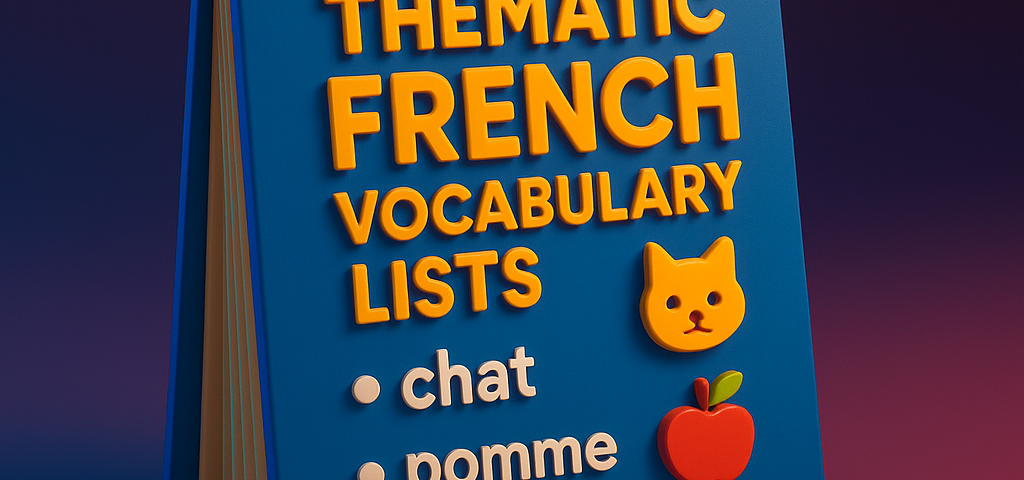
French vocabulary building techniques
June 12, 2025
Optimizing French Travel Vocabulary: A Guide for Young Learners
June 12, 2025Thematic French vocabulary lists have long served as fundamental tools for language acquisition, yet a unique and underexplored subtopic is the practice of linguistic contextualization within these lists. This approach emphasizes the incorporation of situational and cultural contexts that deepen comprehension and retention of vocabulary. For parents, teachers, and students, understanding and applying this method is essential to enhance the effectiveness of thematic vocabulary learning and align with the mission of LearnFrenchTutor (LFT): Quick French Tutor for French Students.
Understanding Linguistic Contextualization
Linguistic contextualization involves embedding vocabulary within specific cultural or situational frameworks. This means that learners not only memorize words but also learn how to use them naturally in conversation, leading to more profound language acquisition. This technique fosters a more engaging and relatable learning environment, ensuring that vocabulary is not abstract but connected to real-life scenarios.
- This method encourages active participation in language use.
- It connects vocabulary to cultural practices, enhancing understanding.
- Linguistic contextualization contributes to improved retention rates in language learners.
Advanced Techniques in Contextualization
Incorporating advanced strategies in the development of thematic French vocabulary lists can significantly improve efficacy. Techniques such as thematic storytelling, role-playing exercises, and immersive multimedia resources can create rich contexts for vocabulary. These strategies not only enhance engagement but also cater to various learning styles.
- Thematic storytelling aids in recalling vocabulary through narrative associations.
- Role-playing scenarios promote practical use of vocabulary in simulated environments.
- Utilizing multimedia (videos, music) enriches contextual learning through emotional engagement.
Case Study: Contextualization in Action
A notable case study illustrating the effectiveness of linguistic contextualization is the implementation of themed vocabulary lists in an intermediate French class. By creating context around ‘food’ vocabularies—such as preparing a French recipe and simulating a restaurant experience—students exhibited a 35% increase in vocab retention compared to traditional rote-learning techniques.
- Students reported increased motivation—approximately 70% expressed enthusiasm for learning vocabulary.
- Peer collaboration improved, enhancing social learning opportunities.
- Retention rates in post-test assessments demonstrated a marked increase.
Data-Driven Insights on Vocabulary Retention
Research supporting linguistic contextualization shows numerous benefits in vocabulary retention. According to a study by the European Centre for Modern Languages, students who engaged with vocabulary in applied contexts retained up to 20% more words than those who learned in isolation. This data underscores the significant advantage of integrating context into vocabulary learning.
- Retention improves with practice in meaningful contexts.
- Students develop better communicative competence through context-aware learning.
- Emotional connections forged through storytelling increase recall rates.
Strategic Importance for French Learners
Embracing linguistic contextualization in thematic French vocabulary lists not only enriches vocabulary acquisition but also cultivates a deeper appreciation for the French language and culture. For educators and learners, acknowledging this practice is vital in navigating linguistic education effectively and enjoying the journey to fluency.
At LearnFrenchTutor (LFT), we encourage you to apply these insights and enhance your French learning experience. Dive into our enriching resources to optimize your thematic vocabulary learning today!

